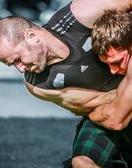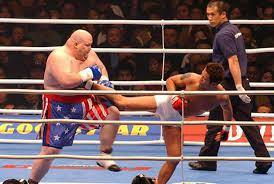
Boxer’s Diet
Recover Quicker, Feel Energised & Focused with the right Diet
A boxer’s diet is undoubtedly a crucial aspect of their preparation for a fight. The right nutrition is required to adapt to training stress/stimulus, to recover and to make weight (unless you happen to be a heavyweight).
The number of the calories that a boxer requires will depend on a number of factors including bodyweight, muscle mass and training programme.
A typical boxer will require between 3,000 and 4,000 calories per day. This is only a rough guide, a professional heavyweight boxer during training camp may need 8,000 calories+ per day.
How to Work out The Calories You Need
- Begin by working out your Basal Metabolic Rate (BMR) with a calculator here
- Then use the Harris Benedict Formula, to work out your calorie requirements, based on your physical activity levels:
– If you exercise 1-3 days a week, multiply your BMR by 1.375
– If you train 3-5 days a week BMR x 1.55
– 6-7 days a week BMR x 1.725
– if you have a physical job and train most days, BMR x 1.9
I’m 5ft 10, 200lbs and train about 4 times a week. So my calorie requirement would be 3060 calories.
This is still only a rough guide. I would recommend monitoring body fat percentage and waist circumference. If your waist and bodyfat goes up – you’re probably eating too much!
Boxer’s Need a Base of Micronutrients for Recovery & WellBeing
You Need the correct fuel all day, every day, not just before, during & after training
Gone are the days (to a certain extent) when sports nutrition was all about pre-workout and post-workout nutrition…for recovery and adaptation to training a fighter requires a range of healthy organic fruit, vegetables and sources of protein.
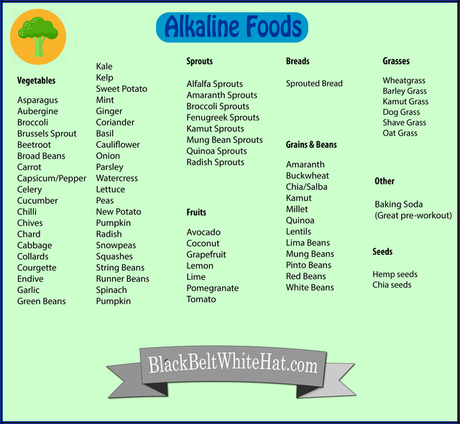
nom noms alkaline goodness
Good sources of protein include hemp seeds, quinoa, organic meat and wild fish.
Boxers should also look to consume a high amount of omega 3, from sources such as flaxseed and fish oil. This is a slightly controversial topic, with many nutritionists arguing that plant-based sources as healthiest, with advocates of fish oil pointing out that vegan sources of omega 3 rarely contain much EPA – the part of omega 3 which has the most potent anti-inflammatory benefits.
Carbohydrates to Fuel Training
Ah, another controversial topic in modern sports nutrition. A typical diet will consist of a high number of carbohydrate foods including oats, pasta, whole grains and glucose-based-drinks before, during and after training.
Lower carbohydrate, higher fat diets have become more fashionable of late, as well as the targeted ketogenic diet.
The targeted ketosis diet consists of a very low carbohydrate diet, day to day – with 50g of fast acting/sugary carbs consumed an hour before training. The 50g of carbohydrate could come from fruit or supplements such as maltodextrin.
Supplements for Boxing
These natural supplements can make all the difference
I prefer to stay away from most supplements if possible, but the research behind whey protein and also creatine is pretty impressive and difficult to argue with. Whey protein with 5g of creatine are ideal straight after training, with a source of carbohydrates such as a banana. 1 hour later look to consume a meal containing protein, fats and carbohydrate.
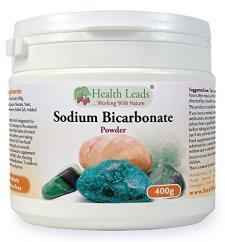
Baking Soda is Healthy & Great for Muscular Endurance
Baking soda is a great, natural supplement that is said to be good for your kidneys and to have anti-cancer properties (I’m not suggesting by any means that it cures it but baking soda is as healthy as supplements come).
Add 2g of baking soda to a liter of water and drink throughout the day – consider adding a small amount of lemon juice too.
Pre-training try 5g of baking soda. Be very careful to assess your tolerance however – too much baking soda = diarrhea.
Supplements to Protect & Enhance your Brain
Don’t forget your fight IQ! Improve Focus & Boxing Problem Solving Skills…
People underestimate the importance of problem-solving and cognition for combat sports – this is crucial!
If you want to improve your Fight IQ for boxing, then watching boxing videos, study styles, practice mental arithmetic and brain training via websites like Luminosity and consider supplementing with Lion’s Mane Mushroom.
Lion’s Mane Mushroom

Rosehip, Ginger, Turmeric & Tart Cherry Juice protect the brain against inflammation…
Foods and supplements such as lions mane mushroom and anti-inflammatory foods such as turmeric, ginger, tart cherry juice and rosehip are also great to consume daily, to offset any damage taken during training or fighting.
Uridine is another supplement that can help with Fight IQ and is said to protect brain cells etc. There are also some quite serious potential side effects, so stick with lions mane if you can afford it.
Fish Oil is Touted as a true Superfood for the Brain…
Another important supplement to protect your brain is Omega 3. Supplementing with fish oil can help reduce inflammation. I have read about people consuming a mega-dose of fish oil at 20-30g per day – however I would not recommend this for boxers as it can increase the risk for a bleed on the brain.
Boxers Diet Plan
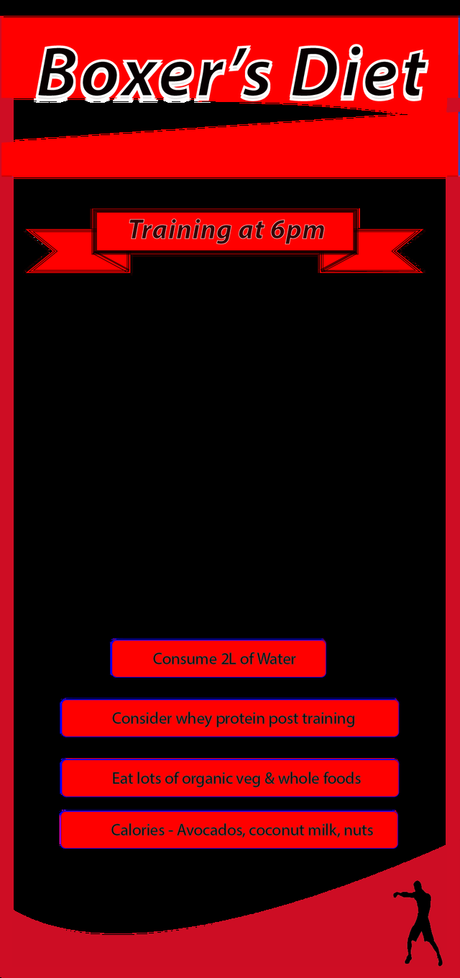
Rough Guide to a Boxer’s DIet Plan
*Please note that the diet plan above is a very rough guide*
Eat 5-10 portions of fruit & veg on top of the meals outlined above.
Hemp Smoothie would include – avocado, peanut butter, hemp seeds, kale, cacao powder (and maybe some stevia to sweeten or raw honey)
Alternative Diet Plans:
- 2 liters of filtered/spring water per day (consider adding a little lemon juice or baking soda)
- 10 sources of fruits & vegetables per day (smoothies or greens powders make this easier)
8am
Whey protein drink in water
High Protein Porridge:
2 cups of porridge oats
1 cup of ground almonds
Handful of sesame seeds
a teaspoon of raw or manuka honey
or
Smoothie –
1/2 Avocado
15g Peanut butter
1/2 Banana
Handful of Kale
5g Spiriluna
10g Cacao powder
5g Stevia (optional sweetener)
10.30am
2 slices of wheat-free toast with organic peanut butter (no added sugar version)
or
2 rice cakes with organic peanut butter
banana
or
Mashed banana mixed with almond butter on toast
12pm
Egg salad with goat’s cheese, lettuce and as many vegetables as possible
300ml hemp milk / full fat milk
2 pieces of high-quality dark chocolate
1 piece of fruit
3pm
Whey protein drink
Piece of fruit
or
1 tin of sardines
5pm – approx 1 hr before training
2 cups of wheat free cereal or porridge oats
with 150-200ml hemp or almond milk and a sliced banana
apple
a handful of nuts and seeds
20 mins before training
10g BCAA (optional)
Post Workout (within 30 mins)
1 piece of fruit (preferably a banana, as these contain glucose as well as fructose)
Post workout drink:
30g maltodextrin
40g whey protein
4g creatine
500mg Alpha lipoic acid
Or
‘natural smoothie‘
1/2 Avocado
15g Peanut butter
1/2 Banana
Handful of Kale
5g Spiriluna
10g Cacao powder
5g Stevia (optional sweetener)
Evening Meal (1 hour after training)
Couscous 70g
Salmon – 100g
Roasted Vegetables
- Pour 125ml water in a pan per 100g of couscous, Bring to the boil. Take off the ring as soon as boiled. Leave to stand for 2 mins. Fluff with fork. Season. Add a little olive oil, balsamic vinegar.
- Salmon – poach in water, with a little butter for approx 15 mins.
- Roasted vegetables – onions, sweet potatoes, carrots. Chop up vegetables, put on a baking tray with oil drizzled on them. Add seasoning e.g. thyme or Chinese five spice. Put in the oven, 180 degrees for 15-20 mins.
Supper
350ml of coconut milk (beware that typical cartons contain about 2% coconut milk – tins or dried coconut milk tend to be better sources)
Calories approx – 3200
- For extra calories make an additional protein smoothie:
40g Hemp seeds/hemp protein powder
25g dried coconut milk
1 banana
Handful of spinach
20g flaxseed powder/coconut oil
Blend together – makes 500 to 600 calories
Pecans – are also a great source of extra calories. A 200g bag containing 1,400 calories is pretty easy to get through, especially if you add some goji berries and a fair amount of pink salt
There are many ways to approach nutrition and meal preparation.
Many fighters stick to 5 or 6 small meals per day,
whilst others may practice intermittent fasting or prefer a ketogenic alkaline diet.
Some may consume supplements, whilst other boxers prefer to consume a plant-based whole-foods diet with no supplements at all.
Experiment and see what works for you. General principles remain however:
- Get plenty of fruit and vegetables 5-10 portions per day
- Avoid processed foods like Pot Noodles
- Whole foods are best
- Get plenty of protein – hemp seeds, grass-fed beef, wild fish
- Get plenty of omega 3 – flaxseed and/or fish oil
- Avoid alcohol especially after a fight or training
- Consume anti-inflammatory foods like ginger, turmeric etc
- Don’t fry with sunflower oil and oils high in omega 6
- Foods to build healthy gut flora – sauerkraut, kefir, yogurt
Foods Not To Eat
Alchohol – causes inflammation and generally bad for your brain. (weed is potentially a better option)
Processed foods – again, cause inflammation. This is where the argument against supplements comes in – despite the research behind supplements such as whey protein, many combat athletes are turning to whole foods diets high in vegetables and avoiding supplements all together. They feel that this gives them a base of general wellbeing and energy which is great for recovery and immune functioning etc which allows them to train harder.
What to Eat Before a Boxing-Training-Session
You will need to experiment a bit to find out what suits you best.
One protocol to try might be:
- Main Meal around 2.5 hours before training*
- A high carbohydrate snack around an hour before**
- Sip on coconut water or a sports drink during the hour before
*The A main meal might be something like a chicken stir fry
**The high carbohydrate snack might be something like a banana and a handful of goji berries
You can also try baking soda about 30 minutes before training too. Start off with 2/3g and build up slowly to find your tolerance (too much in one go can give you an upset stomach)
What to Eat During a Boxing-Training-Session
During a training session sip on a drink containing electrolytes and ideally some carbohydrates too.
A natural sports drink might be something like:
- coconut water
- Water with a pinch of Himalayan salt
- Diluted fruit juice with a pinch of salt
The issue with ‘standard’ sports drinks is that they contain unhealthy ingredients such as artificial colourings and additives, as well as filtered, sugary crap like fructose-syrup.
Maltodextrin has a lot of research behind it in terms of being the best ingredient to look out for if you do go for a traditional sports drink. You can buy maltodextrin in bulk from bulkpowders – and avoid the acidic sweeteners etc. found in commercial ready to drink formulas.
What to Eat After Training
To take advantage of the increased insulin levels, to improve recovery look to have:
- A Protein & Carbohydrate Drink or Smoothie immediately after
- A meal Within 1 hour
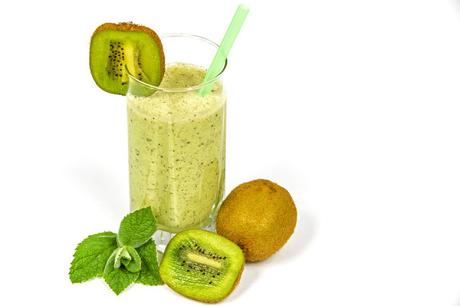
It’s up to you whether you should look to consume a supplement-based protein drink or a whole foods based one.
For example, a protein shake might contain:
- 30g whey protein
- 20g maltodextrin
- 10g oats
- 5g creatine
Whilst others might prefer a ‘natural’ blended smoothie:
- 20g hemp seeds
- 10g oats
- 1 banana
- 10g pure peanut butter
Either way, post-training is the ideal time to replenish glycogen stores and to consume protein to also ensure your body adapts to the training stimulus and recovers in time for the next training session.
Targeted Ketogenic Diet for Boxers
For boxer’s looking to shed a little weight and to reduce inflammation, targeted ketosis may be worth looking into.
The brain is also said to function more efficiently when using ketones as fuel, rather then glucose – great for Fight IQ again.
Ketosis is also said to reduce inflammation – great for recovery and general wellbeing.
Ketosis will also help you lose a few pounds instantly, as carbohydrates hold a lot of water (2.7g of water is held in the body for every 1g of carbohydrate), by reducing the carbohydrate / glycogen stored in the body, you will quickly lose some water-weight.
The issue with ketosis is that the first 2 to 3 weeks with very low carbohydrate diets is hard going. You lose energy and focus etc as your body becomes adapted to using fat and ketones as fuel instead of glucose. This can be avoided to a certain extent by supplementing with exogenous ketones.
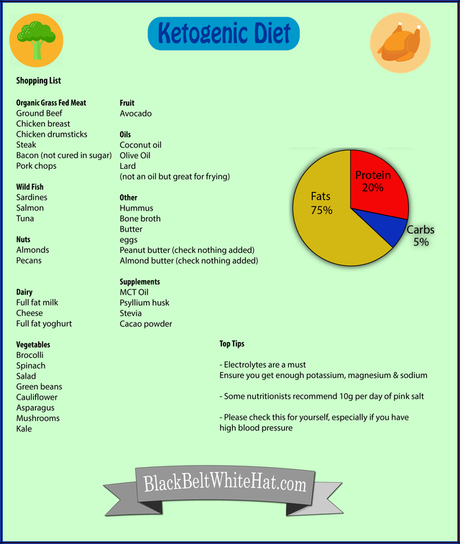
Another issue with ketosis is that you can lose power and strength to a certain extent as there are no, or very little, glycogen stores to call upon. Fat is a more efficient fuel source but cannot fuel explosive movements.
To offset this issue, consume 50g of fast-acting carbohydrate like maltodextrin around 45 minutes before training. This will temporarily ‘kick you out of ketosis’ for a few hours, but you will be able to train at a higher intensity.
You take the 50g of carbohydrate before each time you train, but you will also lose the benefits of ketosis each time you have the carbohydrate. Most people, therefore limit this protocol to twice a week.
Use the pee-sticks to make sure you are back in ketosis before doing it again.
Paleo Diet for Boxers
The paleo diet is a controversial one too.
Most nutritionists & dieticians will regard it as a healthy diet mainly, because of all the high quality whole foods that you eat.
However – it tends to be low(er) carbohydrate with no grains. This remains controversial as many see carbohydrate as the fuel for exercise and believe that it must be consumed in large quantities.

This is debatable, with more and more people saying that eating carbohydrate only on training days, or in smaller quantities (100g per day for example) is optimal for both wellbeing and performance.
The jury is still out!
You could always try the ‘whole foods approach’ and dropping grains on non-training days to see how you feel.
Robb Wolf is a good guy to follow in regards to Paleo diets for athletes.
A final note on diets and boxing that we don’t consider but should…
Allergies & Combat Sports Really Do Not Mix – Cut Out Allergies with Diet
If you suffer from allergies, you probably suffer from a compromised or over-active immune system and chances are that you are riddled with inflammation.
Supplements for allergies include:
- Rosemary (tea or capsules)
- Nettle (tea or capsules)
- Quercitin
- Guduchi
- Spirulina
The above supplements treat the symptoms, whilst the guduchi powder and spirulina also help to boost your immune system.
Allergies can also be caused by a candida overgrowth in the gut, this can be treat with:
- Apple Cider Vinegar
- Olive Leaf Extract
- Probiotics & Fermented foods
On a personal note, I suffered from allergies since I can remember.
I can’t overstate how shite bad allergies make you feel, from the joint pain, clogged up head and fatigue that they cause.
Allergies definitely have an impact on your motivation, focus and ability to recover in between training sessions.
I found a massive difference too but cutting out dairy. This was literally a life changer for me.
Focus on Wellbeing & Feeling Good
Supplements such as protein shakes, creatine and energy drinks are all well and good, but they don’t compensate for a poor diet.
Ensure that you eat:
- Organic Fruit & Veg
- Electrolytes from coconut water &/or pink salt
- High quality protein – hemp seeds, organic meat, free range eggs
- Berries – blueberries, goji berries
- Healthy Fats
Avoid omega 6 in foods such as sunflower oil as these are pro-inflammatory.
Non-Diet ways/strategies to improve recovery and performance include
- Grounding – Barefoot walking
- Lightboxes – Especially for energy in winter
- Saunas or Ice baths – Great for the immune system
- Breathing Exercises – see Wim Hof
Fore more ways to increase energy levels & enhance recovery see my MMA Recovery article.
Boxer’s Diet to Lose Weight Fast
I’ve included this section due to the amount of searches for “boxer’s diet to lose weight fast” not because it’s something that I recommend.
LOSING WEIGHT EXTREMELY QUICKLY IS POTENTIALLY FATAL
So always gain professional advice
Basic Principles/Theory behind final weight cut:
Cut Down on Carbs
– 1 gram of carbs, stores an additional 3 grams of water, so carbs need to be reduced
Cut Out Sodium
– Sodium/salt makes the body retain water (so don’t have any)
Drink Lots (Gallons) of Water
– Drinking lots of water, according to Martin Rooney, makes the body trigger hormones, which in turn, cause the body to excrete more water than normal.
So by drinking 2 gallons, and tapering it down to no water at all, the body will lose more water weight.
To lose around 15lbs in a week (depending on current weight) (remember this should be done with medical & professional supervision)
6 Days out from the weight in:
Day 1:
Increased water consumption effects the regulation of aldosterone, a hormone which influences water retention and sodium:
Drink 9 litres of water (some people recommend distilled water)
Eat around 50-60g of carbs
Plenty of protein and fats, within 3 or 4 meals, no snacks
Plenty of organic veg, omega 3 etc. You’ll need nutrient dense food to stop you feeling too run down.
This is the same for every day except the weigh in day.
No Salt
Day 2:
Drink 4 litres of water
Eat around 50g of carbs
Plenty of protein and fats, within 3 or 4 meals, no snacks
No Salt
Day 3:
Drink 4 litres of water
Eat around 50g of carbs but no starches or refined sugar
Plenty of protein and fats, within 3 or 4 meals, no snacks
No Salt
Day 4:
Drink 2.5 litres of water
Eat around 50g of carbs but no starches or sugar
Plenty of protein and fats, within 3 or 4 meals, no snacks
No Salt
Day 5:
Drink 2.5 litres of water
Eat around 20-40g of carbs but no starches or sugar
Plenty of protein and fats, within 3 or 4 meals, no snacks
last meal by 6pm
No Salt
It is generally agreed that you should be about 3-6lbs over your weigh-in weight, the time you go to bed before the night before the weigh-in.
Weigh in Day:
2 very small meals
less than 10g of carbs
No water or salt until weigh in
Weight Loss through Sweating – VERY dangerous and potentially damaging to performance
Be aware of physical effort and energy expenditure if making weight for a fight.
You can do low intensity cardio wearing heavy or waterproof clothing the day of your weigh in.
Weigh yourself at 5 minute intervals.
You can soak in a hot bath the night before the weigh in. Weigh yourself at 10 minute intervals.
Put everything in the water, except for your mouth and nose. Towel off after each interval and weigh yourself, do not shower, as this can make you gain more weight.
Take 5-10 minute intervals between 10 minute bouts in the bath.
MAKE SURE YOU HAVE PROFESSIONAL SUPERVISION
This weight loss is short-term only
For information on making weight and diets related to weight cutting – please see my other article

After a weigh-in
